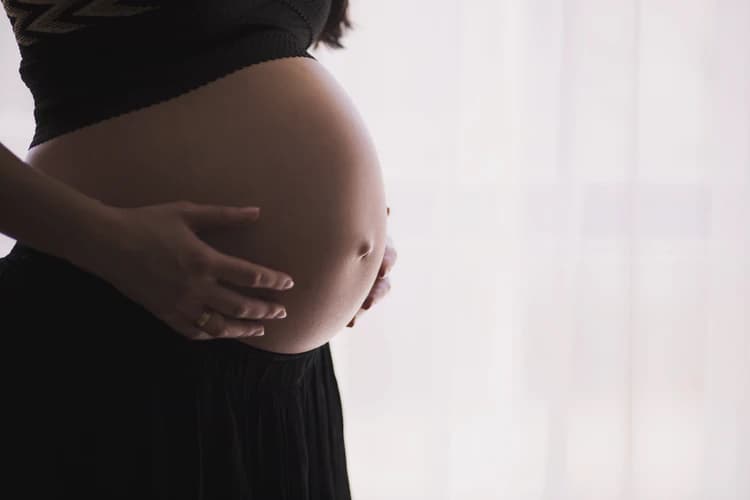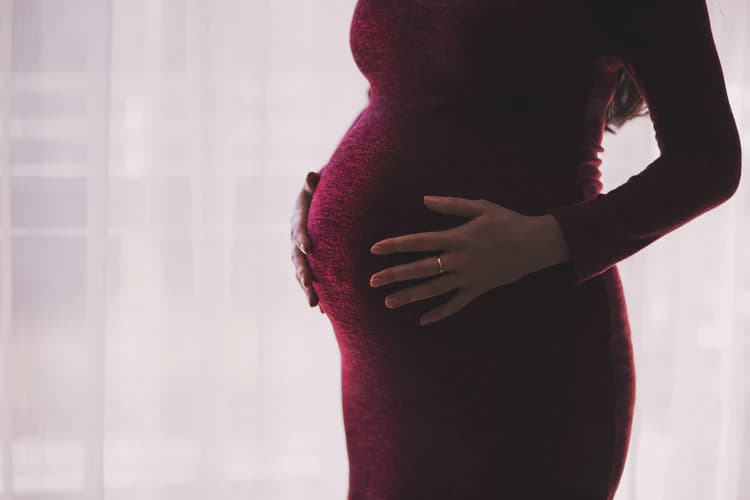Birth Control Pill: Usage For Pregnant Women, Side Effects
What is the birth control pill? What does it do? What are the side effects? We will try to answer all these questions.
Pills should be used after examination and evaluation of the patient under the supervision of a doctor.
Because there are different pills with very different effects.
It is best to look at the characteristics of the patient and give the appropriate medicine to the patient.
A pill that one woman is very happy with may not be preferred by another woman because of its side effects.
What Will We Learn?
What Do Birth Control Pills Do?
Birth control pills are drugs that contain steroid hormones (estrogen and progesterone).
There are also birth control pills containing progesterone alone, but mostly combined (containing estrogen + progesterone) drugs are available on the market.
They act by inhibiting ovulation by acting mostly on the pituitary and hypothalamus regions of the brain.
In addition, it has effects such as making the intrauterine tissue (endometrium) unsuitable for the baby to settle, preventing the progression of sperm by thickening the cervix (cervical mucus) and preventing the sperm and egg from meeting by disrupting the movements of the tubes.
Progesterone-only pills (minipill) provide birth control mostly through the 2nd mechanism; Normal ovulation occurs in 40% of patients using these pills.
Failure rates of birth control pills vary according to the type of pills and the care of the patients in the application.
When used with care, the failure rate of combined birth control pills in the first year is reported as one in a thousand, but this rate rises to 3 percent in practice. In pills containing only progesterone, these rates are given as 5 per thousand and 3 percent, respectively.
Doğum kontrol hapları nasıl kullanılmalıdır?

How Should Birth Control Pills Be Used?
It is recommended that birth control pills be taken at the same time each day for 21 days.
The person who will start the pill for the first time should start before the 5th day of the menstrual period (preferably the first day), and in the following months, when the box is finished, he should start a new box on the eighth day by taking a break for seven days.
Here it is important to take the pill every day without forgetting it.
When a pill is forgotten, it should be taken as soon as it comes to mind, then the other pills should be continued in order.
The protective effect of the pill continues that month.
If two pills are forgotten in the first 2 weeks of the box, this is compensated by taking two pills for the next two days.
Here, too, there is no need for another contraceptive method, but some doctors recommend an additional method of contraception for a week.
If 2 pills are missed in the 3rd week, or more than 2 pills in any period, an additional method of contraception should be applied immediately.
You should definitely read our Texa pills article.
In addition, women using birth control pills should be protected by using another method for at least one week in case of gastroenteritis (severe nausea-diarrhea) even if they do not forget any pills.
Some boxes contain 28 pills.
This is for ease of use. It is the first 21 pills that provide actual birth control, while the other 7 pills usually contain vitamin pills such as iron.
In cases of oblivion, these seven pills should be ignored.
In the selection of pills, we are based on the principle of effective contraception and a wide safety margin.
Birth control pills containing low-dose estrogen under 50 micrograms, along with a low-dose progesterone, are more preferred. In addition, in patients with problems such as hair growth, oily skin and acne, birth control pills with anti-androgen effect should be the first choice.

In Which Situations Is Absolutely No Birth Control Pill Used?
- If you have thrombophlebitis, thromboembolic diseases (blood clots to form plugs in the veins), cerebral vascular (disease in the brain vessels), coronary vascular disease.
- Severe deterioration in liver function.
- Breast cancer or suspected.
- Undiagnosed abnormal vaginal bleeding.
- Pregnancy or suspected pregnancy.
- Smokers over the age of 35.
Situations In Which Birth Control Pills Should Not Be Used Relatively
- Migraine headaches; Low-dose birth control pills can be used in cases of migraine who are not old, non-smoker and do not have hypertension.
- Hypertension; Low-dose birth control pills can be used in hypertensives younger than 35 years of age.
- Myoma; Low-dose pills have been shown to not cause fibroids to grow and reduce the amount of menstrual bleeding.
- Gestational diabetes; These patients can use birth control pills by closely monitoring their blood sugar levels.
- Non-emergency surgeries; About 4 weeks before major surgery, the use of birth control pills is stopped. These pills can cause blood clots and vascular occlusion, with the effect of immobility after surgery.
- Epilepsy (epilepsy); Birth control pills do not have a bad effect on the course of this disease. Even positive effects have been reported. However, epilepsy drugs reduce the effectiveness of birth control pills.
- sickle cell disease; It is a kind of blood disease. Low-dose birth control pills are recommended, as these are more important to prevent pregnancy.
- Diabetes mellitus (diabetes); Patients under the age of 35 and who do not have any other disease can use birth control pills.
- Gallbladder disease; Birth control pills do not form gallstones. However, if there are stones, they can increase the patient’s complaints.
- If there is high blood pressure

Beneficial Effects Of Birth Control Pills
• Effective birth control
• Less need for abortion
• Less need for surgical sterilization
• Reduction in endometrial (uterine) cancer
• Reduction in ovarian cancer
• Reduction in the risk of ectopic pregnancy
• More regular menstrual bleeding
• Decrease in the amount of menstrual bleeding
• Improvement of menstrual pains
• Reduction of anemia
• Less salpingitis (inflammation of the tubes)
• Less endometriosis
• Possibly less benign breast disease
• Possibly less rheumatoid arthritis
• Presumably to protect against hardening of the arteries (atherosclerosis)
• Possibly increased bone density
• Possible reduction of fibroids
• Possibly reduced ovarian cysts

Problems With Pills And Their Solutions
Non-menstrual bleeding: It is most commonly seen in the first months of starting the pill. This is a temporary situation. It mostly resolves spontaneously. A few years later, breakthrough bleeding may occur.
In the later period, breakthrough bleeding is more common in smokers, in irregular areas of the pill, and in patients with inflammation in the cervix (especially cervical chlamydia infection). For these bleedings, short-term estrogen therapy is usually sufficient.
Cessation of menstruation (amenorrhea): It is especially seen in those who use low-dose estrogen-containing pills.
Excessive thinning of the uterus causes this phenomenon. It has no long-term effect. Due to the suspicion of pregnancy, it causes anxiety in the physician and the patient.
At the end of the drug-free week, a pregnancy test is performed to exclude the possibility of pregnancy. In order to prevent this event from recurring, the patient is usually given pills + estrogen for 21 days in the following month.
Due to this situation, the use of the pill should not be stopped.
Weight gain: The view that pills cause weight gain is wrong. This is a perception issue. For this reason, low-dose pills, proper nutrition and regular exercise can be recommended to patients to avoid discontinuation of the drug.
Pimples: Low-dose pills improve acne.
Ovarian Cysts: Functional ovarian cysts are more common in low-dose pills. It is not a major problem. It improves with treatment. As the dose of estrogen increases, the cysts decrease.
Depression: This is more common in those who use high-dose estrogen pills. As a solution, it is necessary to switch to a low-dose preparation.
Cancer: As we mentioned above, birth control pills have a protective effect against some types of cancer. Therefore, speculations that it causes cancer are unfounded.
Age: Patients over the age of 35 can use birth control pills if they do not have any other disease and do not smoke. Low-dose pills should be preferred.
Sexual Desire: Birth control pills can sometimes decrease sexual desire. In this case, it is appropriate to switch to another pill.
Infertility: Birth control pills do not have a sterile effect. Pregnancy rates within two years after stopping the pill are not different from other people.
Delaying Menopause: Birth control pills neither delay menopause nor disrupt hormones. Although patients using the pill continue to menstruate, after a certain age, the ovaries complete their life.
The point you should not forget is that if you are taking such pills, you should use another form of birth control without consuming the package.
Before trying methods of birth control, you should definitely ask a doctor questions that come to your mind.
Another point you should pay attention to is type of birth control.
One of the possible side effects of the birth control pill is breast tenderness.
It is best to take birth control pills at the same time every day.
During the last week of the cycle, you take inactive pills.
If you are taking birth control pills, your menstrual cycle may change.
If you encounter this situation, be sure to talk to your doctor.
These pills also change the lining of the uterus so that sperm cannot reach the ovary.
By now you should know what birth control pills, also called oral contraceptives, are and how they should be used.
You should discuss increased risk questions with your doctor.
